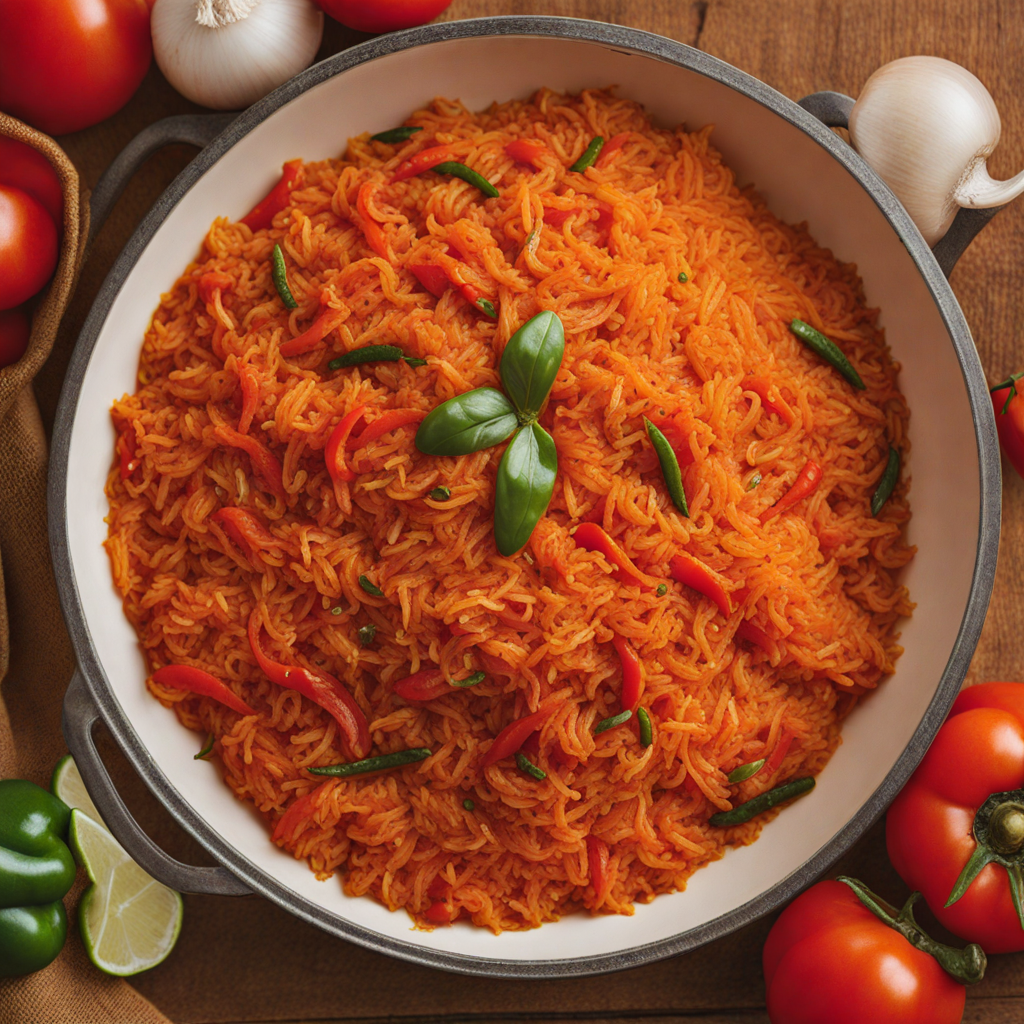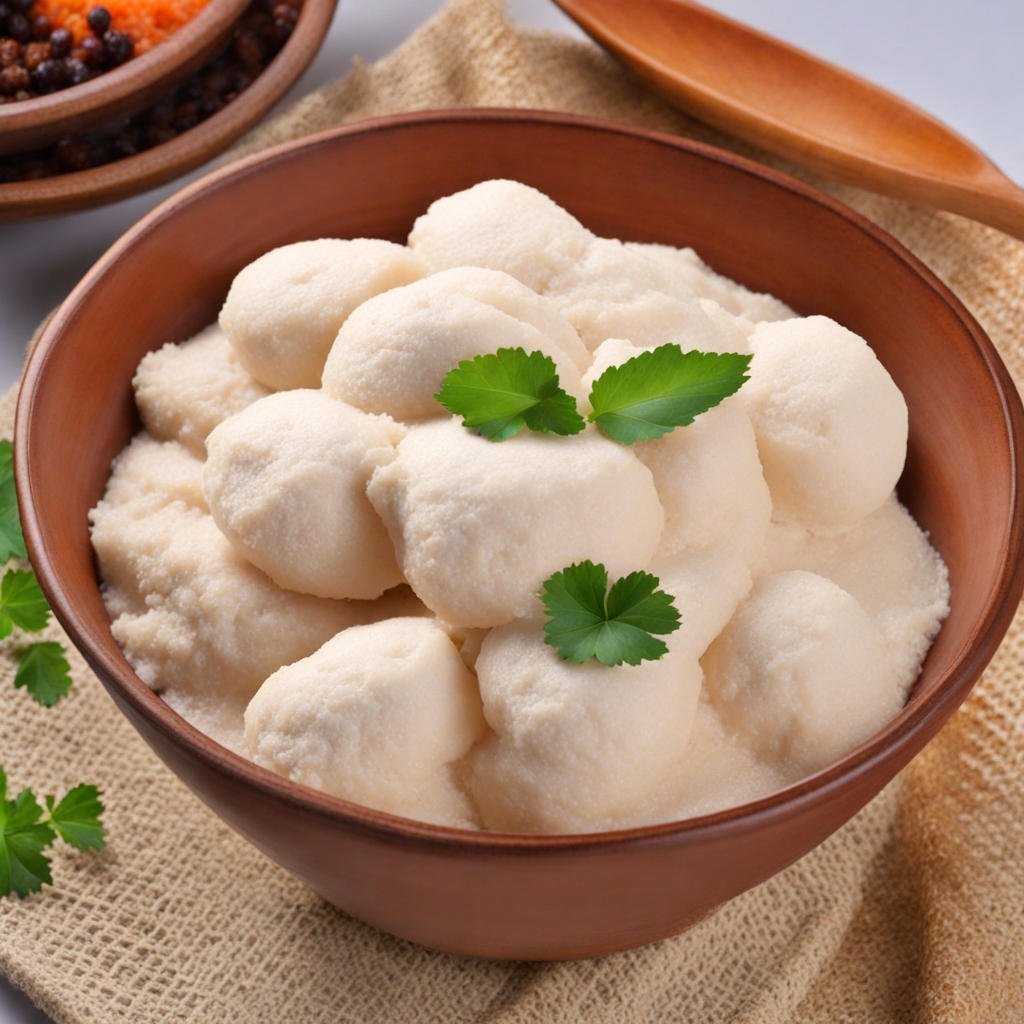Ukwa
Ukwa, also known as African breadfruit, is a traditional Nigerian dish that offers a unique and hearty experience for food lovers. The dish is made from the seeds of the African breadfruit tree, which are harvested, boiled, and often pounded into a smooth, creamy consistency. The flavor profile is rich and earthy, with a hint of nuttiness that sets it apart from other starchy foods. When cooked, Ukwa has a texture that is both soft and slightly chewy, making it a comforting staple in many Nigerian households. Typically, Ukwa is enjoyed with a variety of accompaniments, enhancing its flavor and making it a versatile dish. It can be served with palm oil, pepper sauce, or even a rich stew, allowing the eater to customize their meal to their taste preferences. The dish can also be flavored with spices such as ginger, garlic, and onions, which infuse it with warmth and depth. Additionally, Ukwa can be paired with protein sources like fish or meat, creating a balanced and satisfying meal that showcases the vibrant culinary traditions of Nigeria. Not only is Ukwa delicious, but it is also packed with nutritional benefits. The African breadfruit is a good source of carbohydrates, fiber, and essential vitamins, making it a wholesome addition to any diet. Its preparation is often a communal activity, bringing families and friends together around the cooking pot, embodying the spirit of community and sharing that is central to Nigerian culture. Discovering Ukwa is not just about tasting a new dish; it's about experiencing the rich heritage and flavors of Nigeria in every bite.
How It Became This Dish
The History of Ukwa: A Culinary Legacy from Nigeria Ukwa, also known as African breadfruit (Treculia africana), is a cherished delicacy in Nigeria, particularly among the Igbo people of the southeastern region. This versatile food has not only played a pivotal role in the culinary traditions of various Nigerian communities but has also woven itself into the cultural fabric of the nation. Its history is rich, layered, and reflective of the broader socio-cultural dynamics in Nigeria. #### Origins of Ukwa The African breadfruit tree is indigenous to West Africa and has been cultivated for centuries. Ukwa, which is derived from the tree’s seeds, is an integral part of traditional diets among several ethnic groups in Nigeria. The tree thrives in the humid, tropical climate of the region, making it a sustainable food source for rural communities. Historical accounts suggest that the cultivation of the African breadfruit predates colonial influences, with evidence of its use in pre-colonial societies as a source of nourishment. The significance of Ukwa extends beyond its nutritional value; it symbolizes sustenance and resilience. As a food resource, it has often served as a fallback in times of scarcity, particularly during the lean seasons when other crops may not be readily available. The seeds are harvested, boiled, and sometimes fermented, resulting in a unique flavor profile that is both earthy and nutty. The preparation methods vary across regions, reflecting the diverse culinary practices within Nigeria. #### Cultural Significance of Ukwa In Igbo culture, Ukwa carries a profound cultural significance. It is more than just food; it is a symbol of community and togetherness. Traditionally, Ukwa is often prepared during communal gatherings, festivals, and ceremonies. The cooking process itself can be a communal activity, where families and friends come together to prepare the dish, fostering a sense of unity and shared purpose. Ukwa is often associated with traditional rituals and celebrations. For instance, during the New Yam Festival, which is a significant cultural event in the Igbo calendar, Ukwa can be part of the feast that honors the yam harvest. The festival is a time for cultural expression, showcasing traditional music, dance, and food. Ukwa's inclusion in such celebrations highlights its role as a food that embodies the essence of Nigerian heritage. Moreover, Ukwa has been recognized for its nutritional benefits. The seeds are high in protein and carbohydrates, making them an essential food source in a region where food security can be a challenge. The tree itself is resilient and can grow in less fertile soils, allowing it to thrive in areas where other crops might fail. This characteristic has conferred a kind of agricultural importance on Ukwa, reinforcing its status as a staple food for many communities. #### Development Over Time Throughout history, the preparation and consumption of Ukwa have evolved, influenced by cultural exchanges, globalization, and urbanization. Traditionally, Ukwa was prepared in a simple manner, often boiled and served with palm oil, pepper sauce, or as a side dish accompanying various meats and vegetables. However, with the emergence of modern cooking techniques and the globalization of cuisine, innovative recipes have begun to appear, showcasing Ukwa in new light. In urban areas, Ukwa is increasingly being incorporated into contemporary Nigerian cuisine. Chefs and home cooks alike are experimenting with traditional recipes, blending them with global culinary trends. For example, Ukwa is now being used in dishes such as Ukwa soup, which combines the seeds with various vegetables and spices, creating a rich and flavorful dish that appeals to modern palates. Additionally, Ukwa flour is gaining popularity as a gluten-free alternative in baking, allowing for further exploration of this ancient ingredient. The rise of food tourism and the global interest in authentic cuisines have also contributed to the renewed appreciation for Ukwa. As more people seek to explore the culinary heritage of Nigeria, Ukwa has emerged as a focal point, drawing attention to its cultural significance and versatility. Food festivals and cultural events celebrating Nigerian cuisine often feature Ukwa dishes, allowing for a broader audience to engage with this traditional food. #### Challenges and Future Outlook Despite its rich history and cultural significance, Ukwa faces challenges in the modern food landscape. Urbanization and changes in dietary preferences have led to a decline in the cultivation of traditional crops, including the African breadfruit. Younger generations, influenced by fast food culture and convenience, may not prioritize traditional foods like Ukwa, posing a threat to its continued prominence in Nigerian cuisine. However, there is a growing movement among food activists, chefs, and cultural enthusiasts aimed at preserving and promoting traditional foods. Initiatives to educate younger generations about the importance of indigenous ingredients and traditional cooking methods are critical in ensuring that Ukwa does not become a forgotten relic of the past. Community programs that encourage the cultivation of traditional crops and the sharing of culinary knowledge are essential for the sustained appreciation and consumption of Ukwa. Additionally, researchers and agriculturalists are exploring ways to enhance the cultivation of the African breadfruit tree, focusing on its resilience and adaptability to climate change. By promoting sustainable agricultural practices, Ukwa can continue to serve as a vital food source in the face of environmental challenges. #### Conclusion Ukwa is more than just a food item; it is a symbol of Nigeria's rich cultural heritage, resilience, and communal spirit. Its journey from traditional sustenance to modern culinary exploration reflects the dynamic nature of food culture and its ability to adapt and thrive. As Nigeria continues to navigate the complexities of globalization and modernization, the preservation of traditional foods like Ukwa remains vital in maintaining cultural identity and celebrating the diverse tapestry of Nigerian cuisine. Whether enjoyed in a traditional setting or reimagined in contemporary dishes, Ukwa stands as a testament to the enduring legacy of Nigeria's culinary history.
You may like
Discover local flavors from Nigeria






